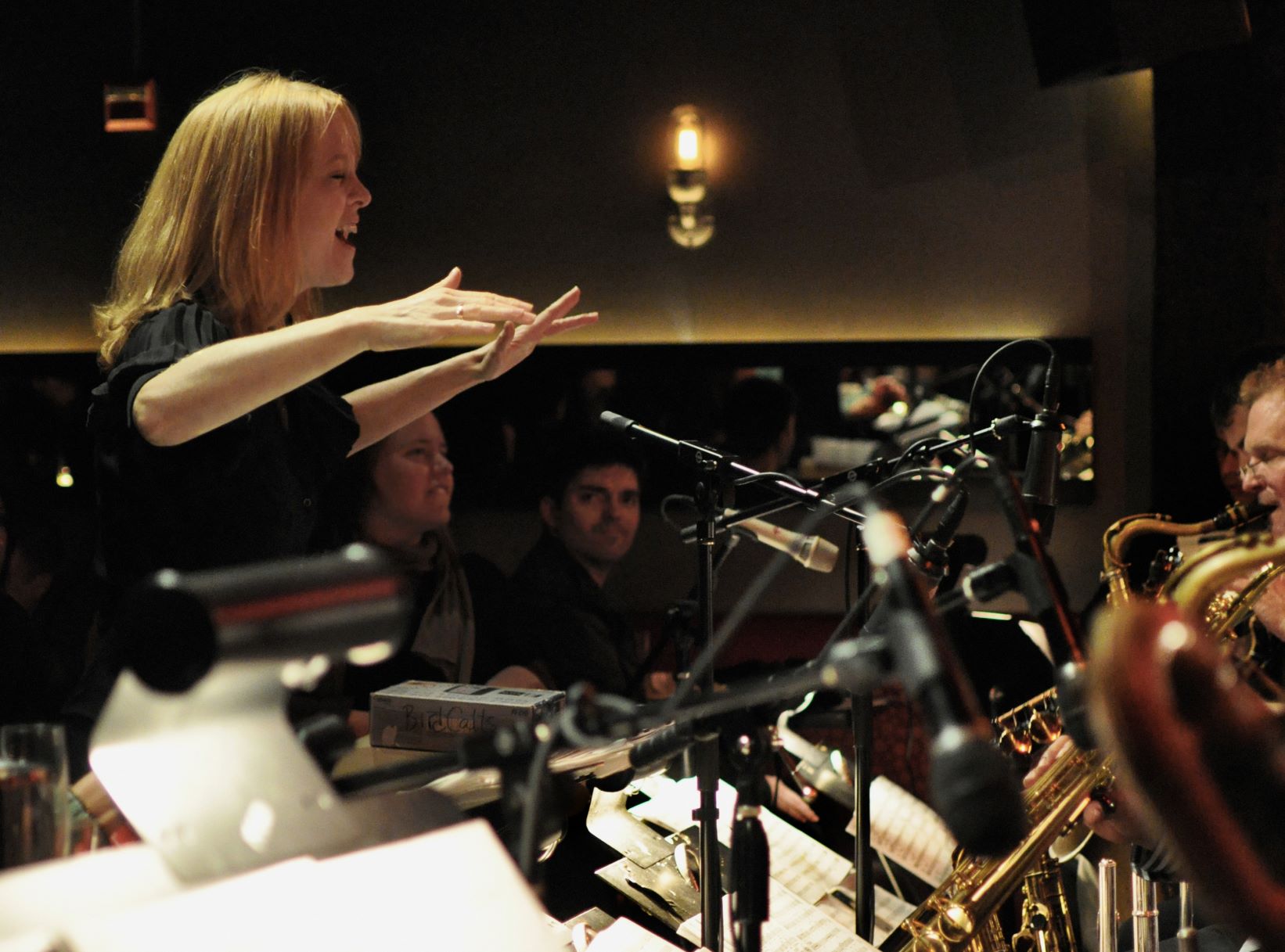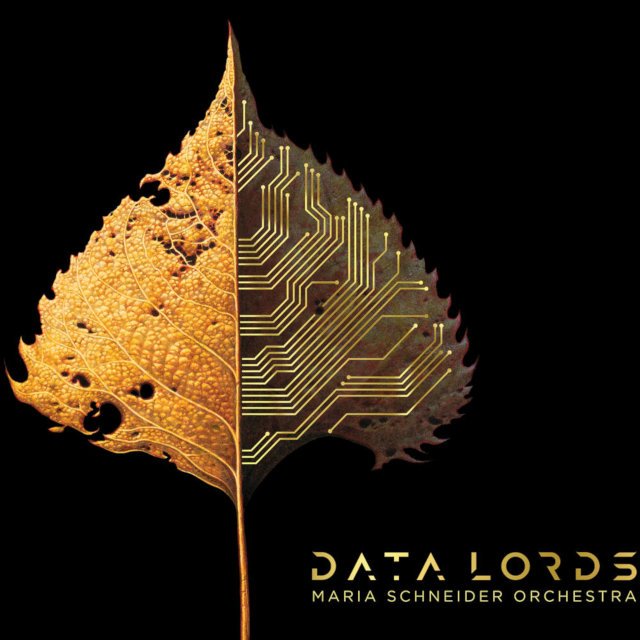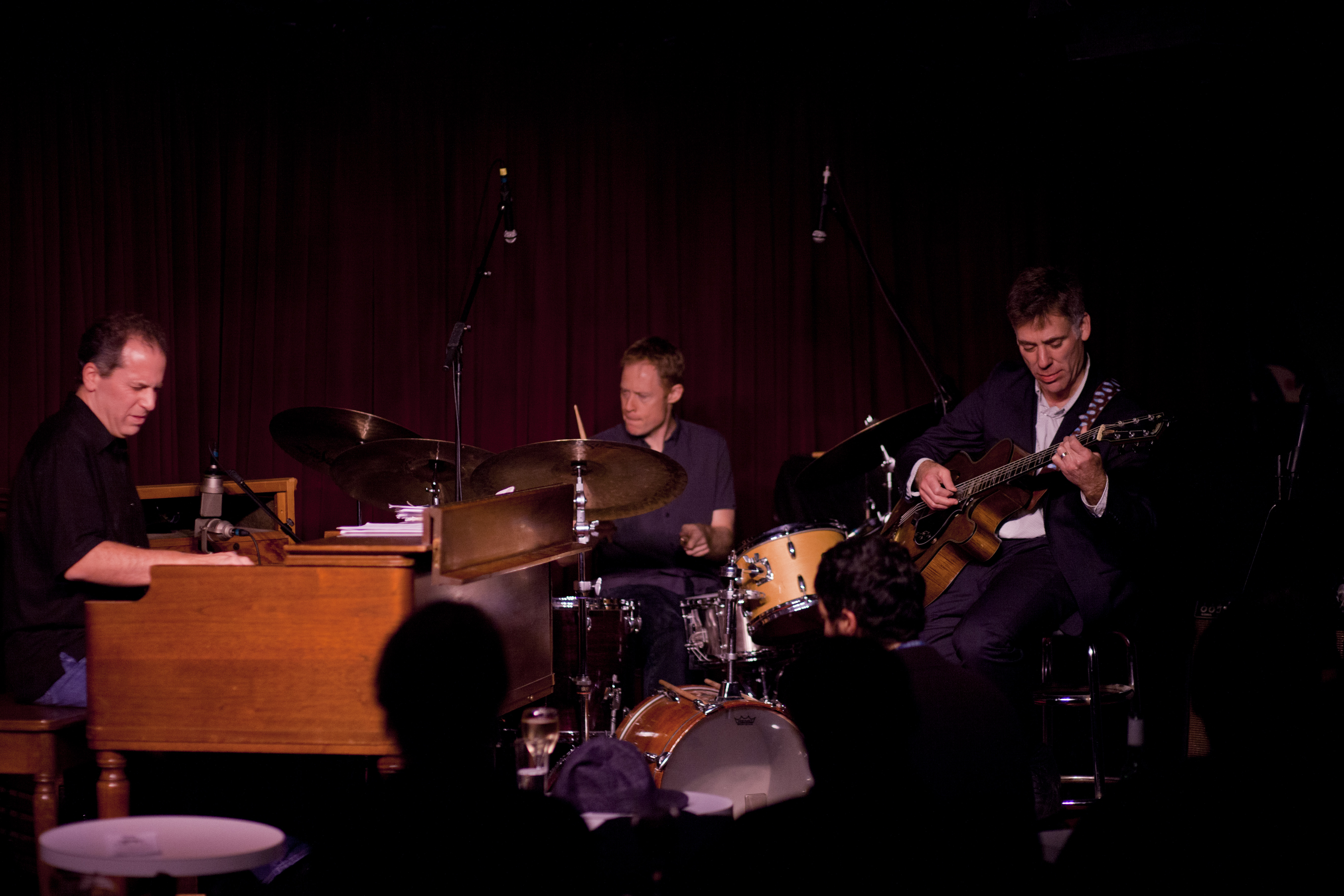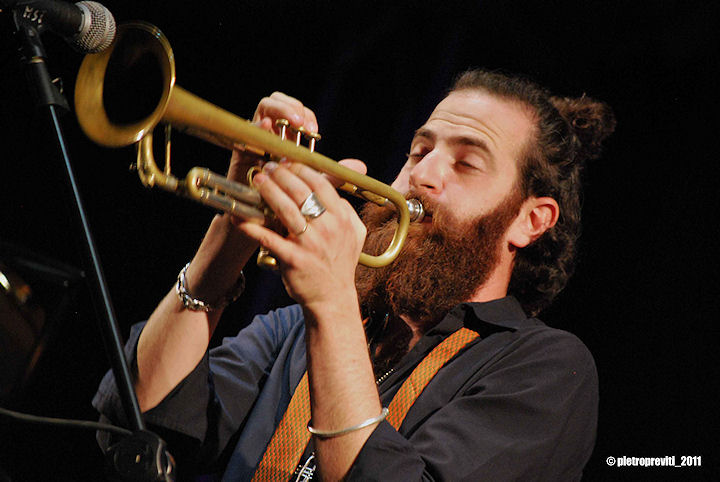
Composer-arranger-bandleader Maria Schneider won two Grammy Awards for her album “Data Lords.” Courtesy the artsdesk.com
All praise Maria Schneider and her larger-than-life, intrepid orchestra! She just won two Grammy Awards for best instrumental composition (“Sputnik”) and best large ensemble recording, for Data Lords. Like a goddess sprouting heavy new wings, Schneider brilliantly ventured far beyond her comfort zone of nature-inspired jazz impressionism, in the Gil Evans tradition: Schneider Grammy announcement
Despite her clear and proud roots, Data Lords affirms her genius as a true original and her prominent place in jazz history. I never actually reviewed this album partly because I’ve given her so much blog and newspaper play over the years and I reviewed in-depth a live concert she performed while unveiling some of Data Lords material, before the album’s release.

Data Lords album cover
I chose Data Lords as my No. 2 album of the year in the NPR jazz critics poll largely because, to me, my top choice, Gregg August’s Dialogues on Race, was too urgently relevant in light of last year’s world-wide racial-justice protests. August’s large ensemble album also carried massive musical weight on its own.
But Schneider’s every statement now virtually demands critical attention, not unlike John Coltrane and Miles Davis, avatars of the post-bop era. Data Lords revealed the fire, indignation and backbone of the music’s leading composer-arranger, fully wielding her past mastery of scoring for jazz orchestra, like a woman warrior leading troops. And, yes, Delacroix’s famous romantic painting “Liberty Leading the People,” comes to mind. And no album had more great music in 2020 than hers. As an artist who records on a self-created label (ArtistShare) and distributes independently, 1 she’s not only a self-made artist but extremely attuned to the role of “data lords,” the gigantic online media companies (Google, Twitter, Facebook, YouTube, etc.) that play a grossly outsize role in how we pursue and receive information on the Internet, and spend our money on cultural products or activity. In other words, Schneider asserts that they virtually lord over our lives because so many of us are now dominated by our involvement in online media.
The Grammy-winning composition “Sputnik” is part of the “protest” side of this two-CD recording, yet it retains the depth of textured and spiritual beauty that trademark her best work, while evoking a profound sense of angst and desolation. By nominally invoking a famous space travel vehicle, it suggests that we may need to travel to new realms far from “home” to regain truth, self-determination, sanity, freedom and societal-coherence – not overseen by the data lords. Here too, an allusion to the Underground Railroad and slavery hovers in the stratosphere. I suggest this not to equate the two, but to honor the cultural pervasiveness of that darkest chapter in this nation’s history.
Such elevated praise might indicate that this is The Maria Schneider Show with musician munchkins. But she chooses her world-class players with Ellingtonian acumen (here, among others, Donny McCaslin, Rich Perry, Steve Wilson, Scott Robinson, Ryan Keberle, Gary Versace, Ben Monder, and the late Frank Kimbrough) and gives them many extended spotlights, which helps expand this to two discs, and there’s hardly a moment of seeming filler.
And Schneider rewards listeners for the facing the sometimes-dissonant challenges of the first CD, “The Digital World,” by reminding us of what she is fighting for, in “Our Natural World,” the gloriously beautiful second disc. Another implication, in these juxtaposed titles, is that data lords’ dominance affects our overall priorities and collective consciousness, perhaps to the detriment of addressing climate change, and the perils to the natural world.
Great art like Schneider’s does its extraordinary work on its own terms, while reaching out to us, to some degree. The cultural covenant is completed when we respond as we will, which that art itself is not responsible for, and yet which reflects its sometimes-uncanny powers of evocation, provocation, and communication.
____________
- Thanks to Ann Braithwaite and her staff, of Braithwaite & Katz Communications for their superb, dedicated promotion of Schneider, and many other independent artists and labels over many years.



